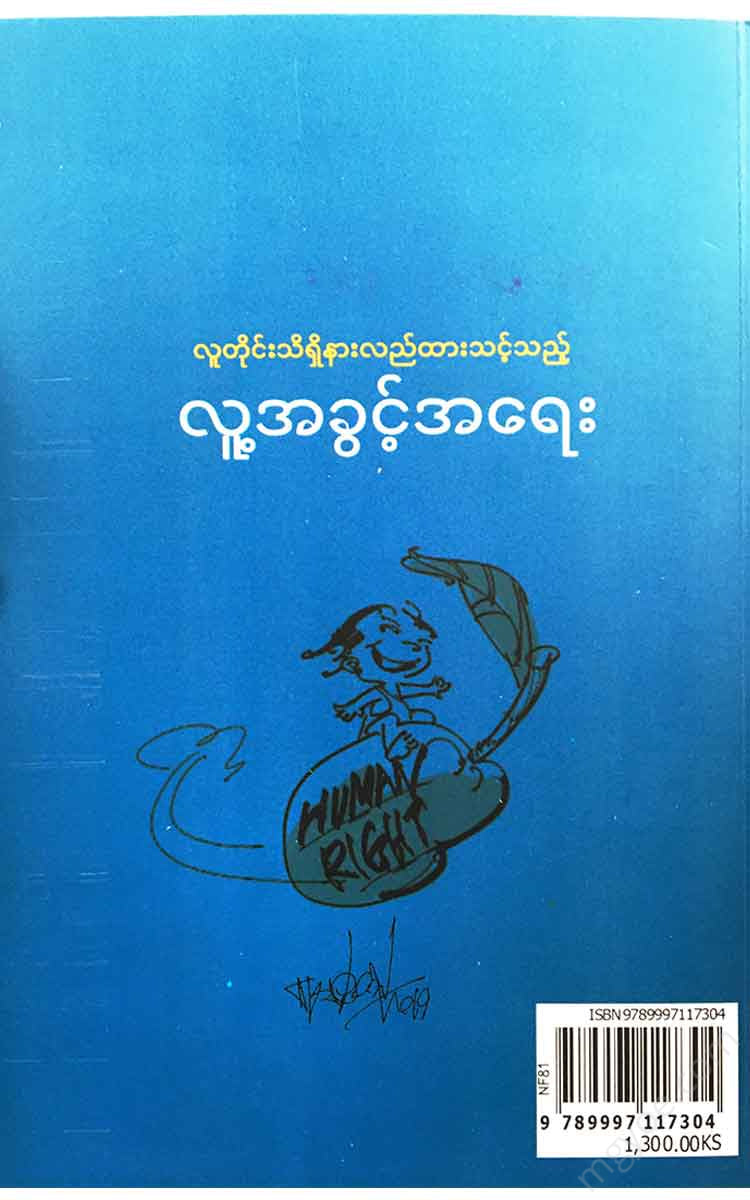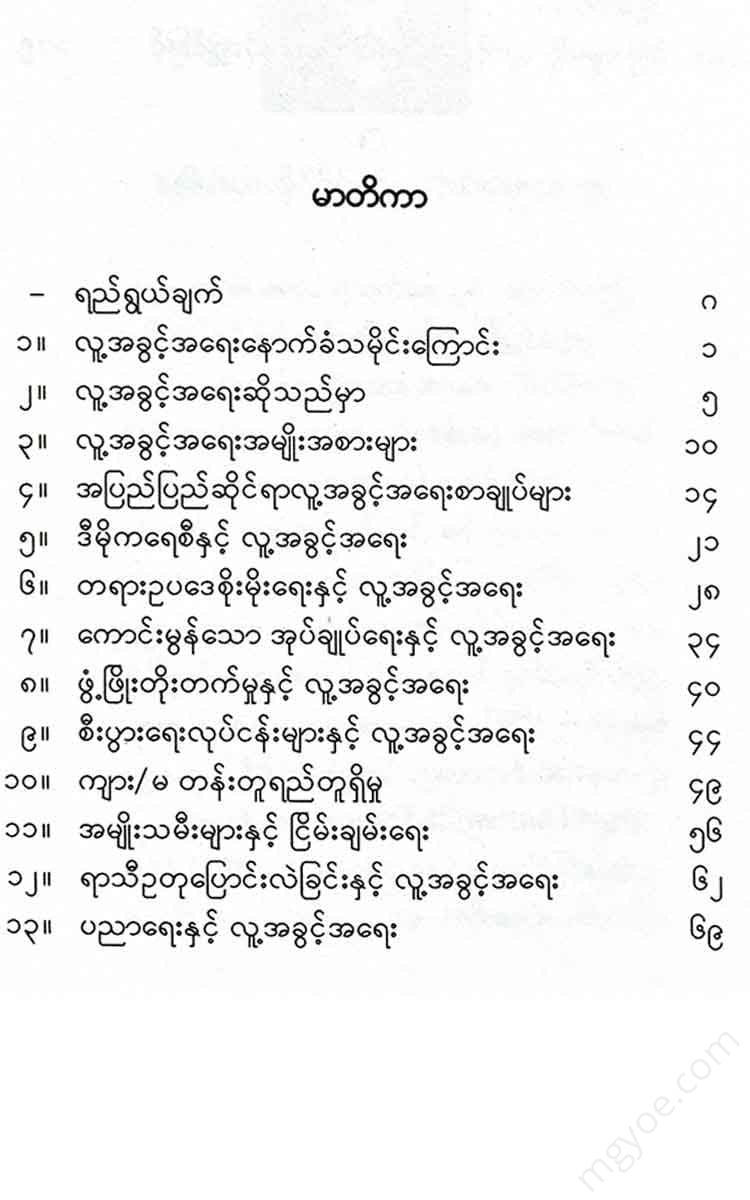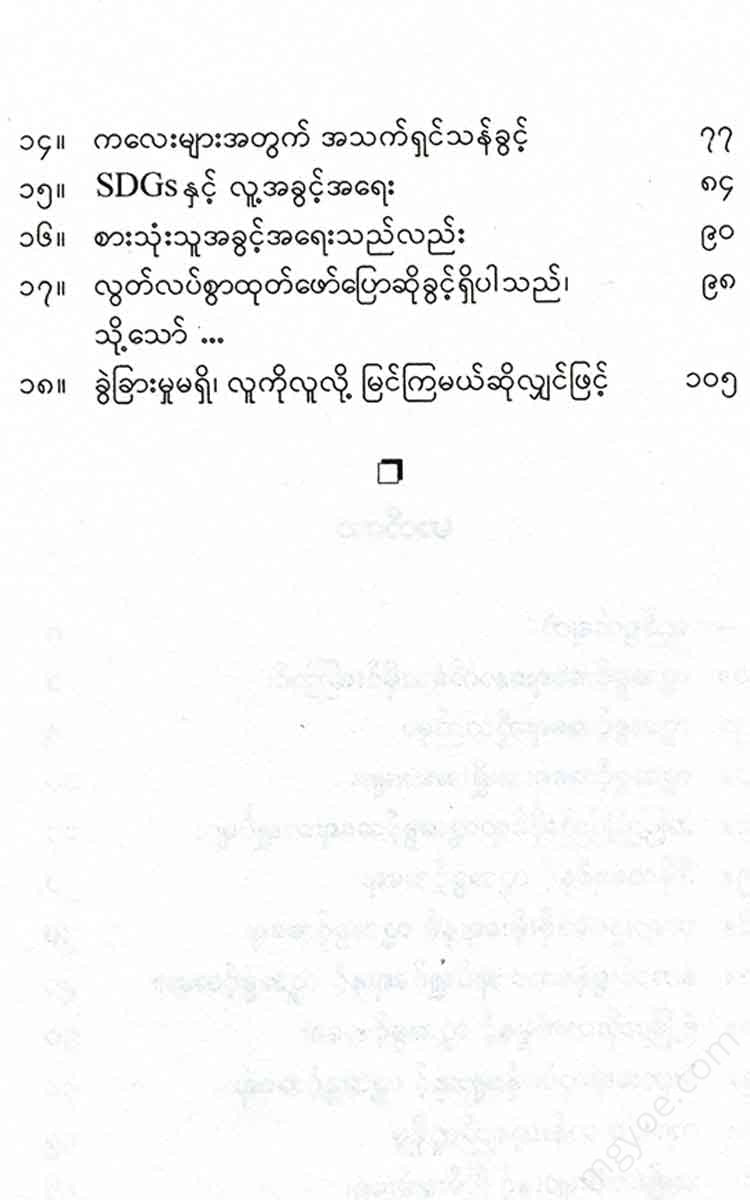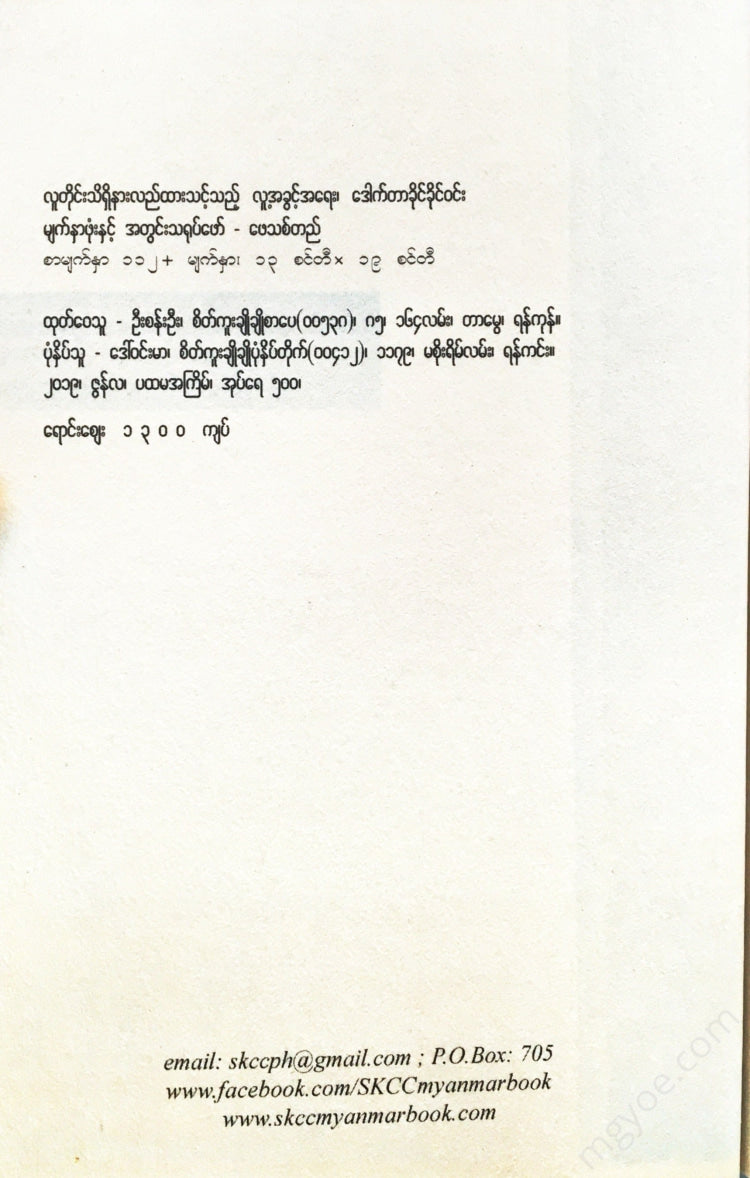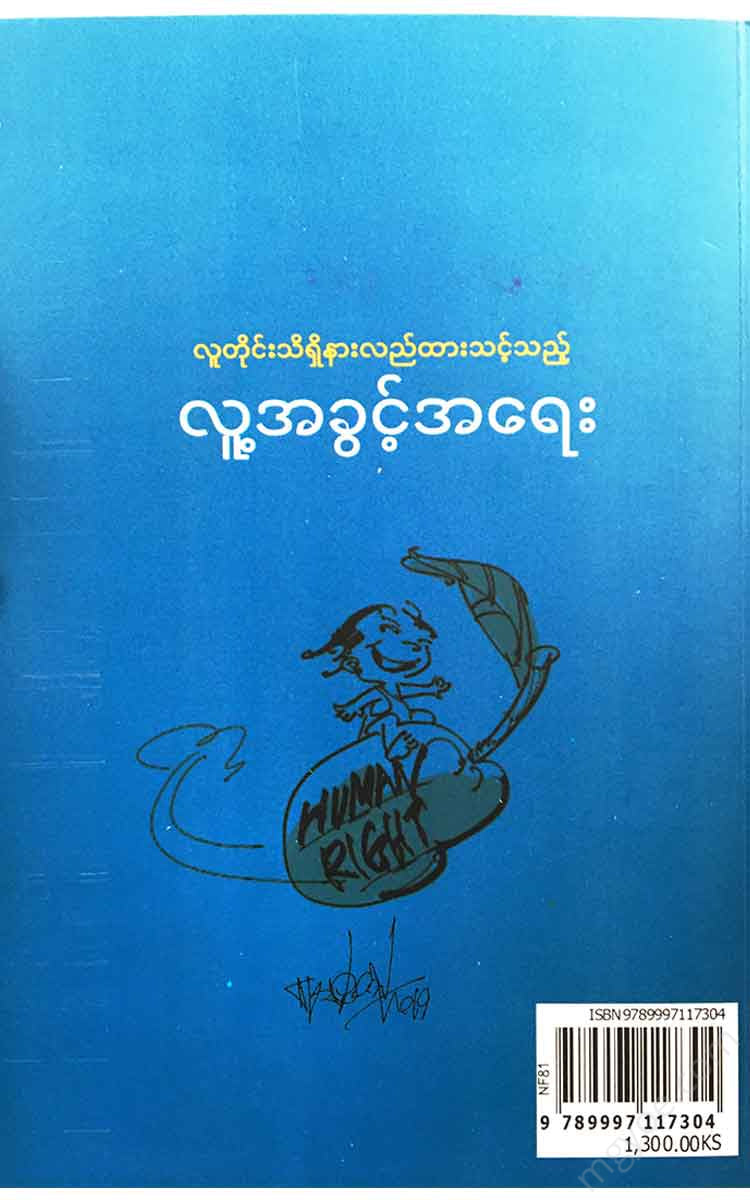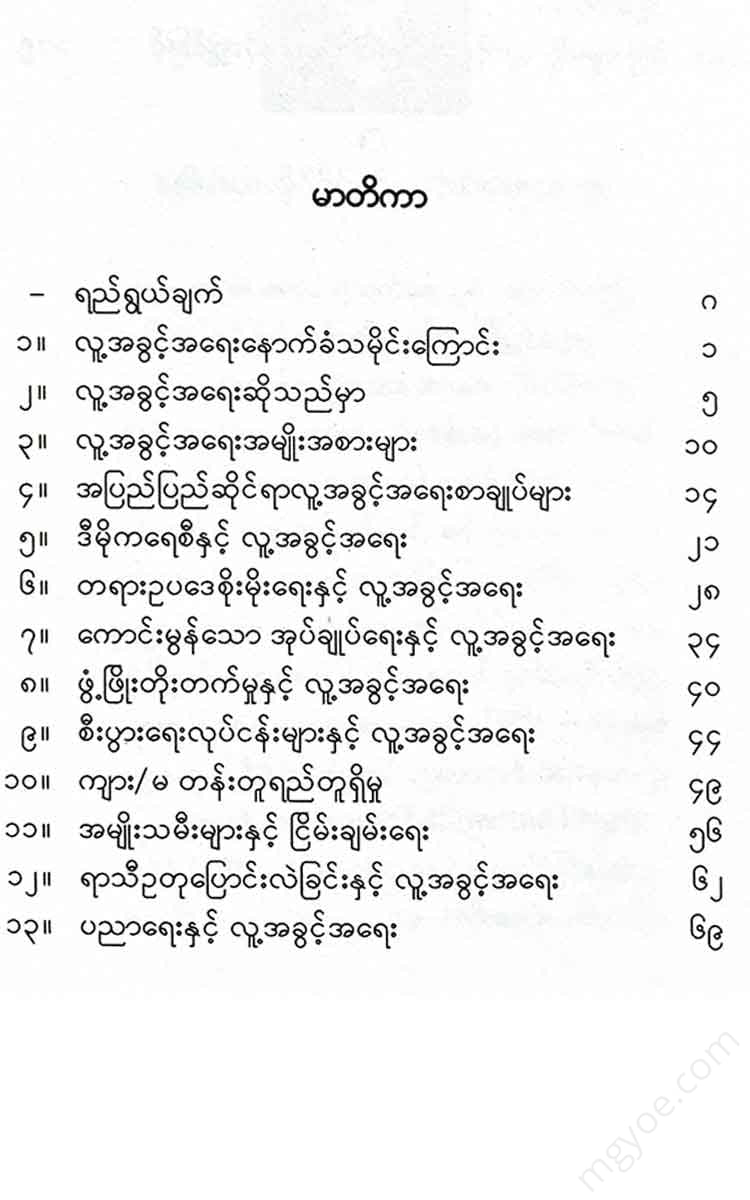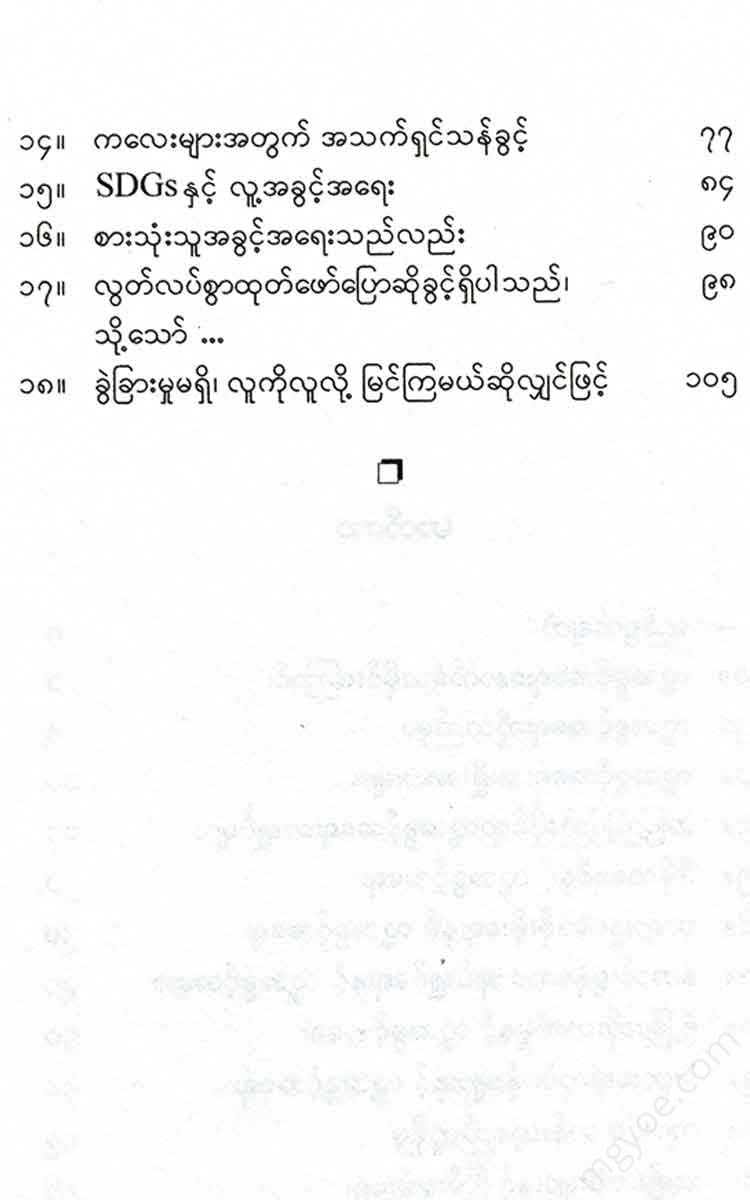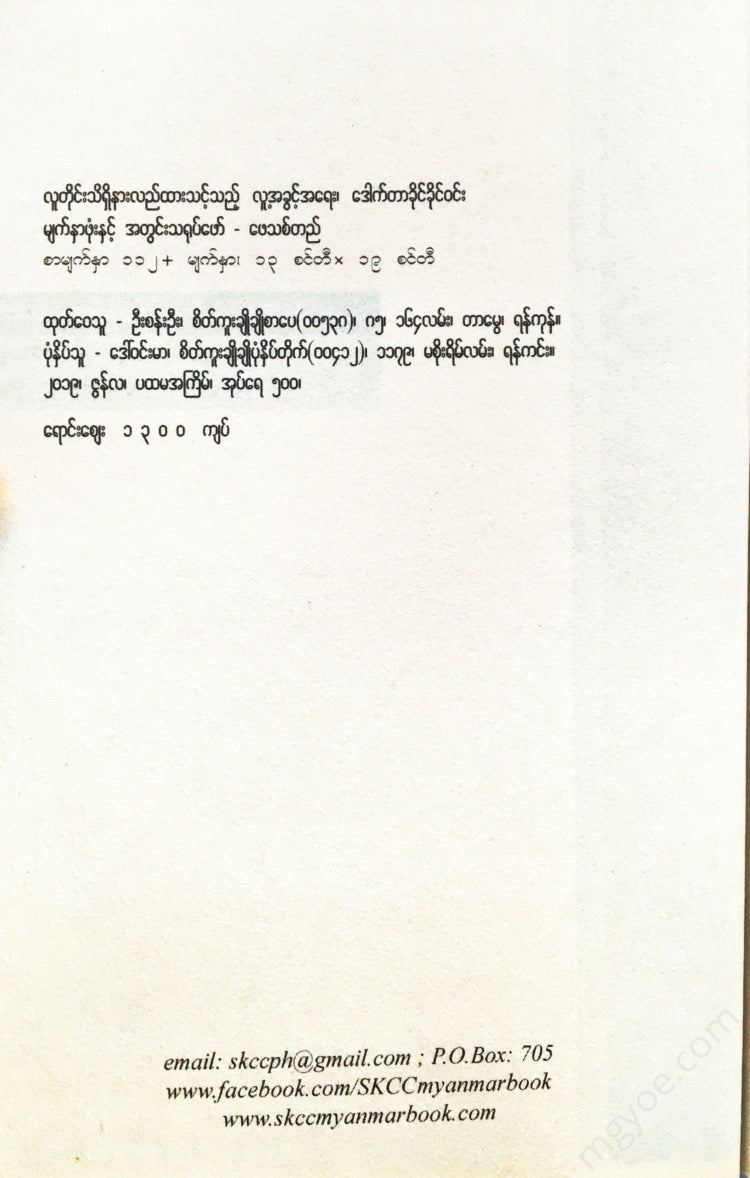စိတ်ကူးချိုချိုစာပေ
Dr. Khaing Khaing Win: - Human rights that everyone should know and understand
Dr. Khaing Khaing Win: - Human rights that everyone should know and understand
Couldn't load pickup availability
Background of human rights
If we look at the history of human rights, it is said that the Magna Carta (The Great Charter) drawn up in England in 1215 began to be involved in the issue of human rights. Magna Carta, which was issued during the reign of King John of England, contains the concepts that have been interpreted as human rights in the future. Later, the Bill of Rights drawn up in England in 1689, the French Declaration of the Rights of Man in 1789, and the US Bill of Rights in 1791, etc., gradually show that the concepts of human rights have become more prominent.
The League of Nations later adopted the Geneva Declaration of the Rights of the Child in 1924, which became the basis for the International Convention on the Rights of the Child. After World War II, the concept of human rights reemerged with great momentum, and in 1945, the United Nations Charter, which was adopted, included the principle of respect for the principle of equal rights and self-determination of people in Article 1 and Article 2, and the principle of promoting and encouraging respect for human rights in Article 3. The above-mentioned developments can be said to be the beginning of what is now called human rights.
The United Nations Charter uses the term human rights, but it does not clearly state what human rights are or what human rights standards are. Therefore, in 1948, under the leadership of the United Nations Commission on Human Rights, which was established in 1946, the Universal Declaration of Human Rights (UDHR ) was adopted by the General Assembly. This declaration was the first declaration in the world regarding human rights. Through this declaration, other international human rights treaties emerged, and today, world leaders have ratified all or some of these treaties as a sign of their respect for human rights and their commitment to protecting human rights for their citizens. From the Magna Carta Declaration, which included human rights principles dating back to 1215, to today, human rights are everywhere, everywhere, and everywhere. It has become an indispensable and very broad concept in every field (politics, public affairs, economics, society, culture). Human rights have become an important part of human interaction in various fields such as within the community, within the family, within the workplace, in the political sphere, in the business sphere, in international relations, etc.

